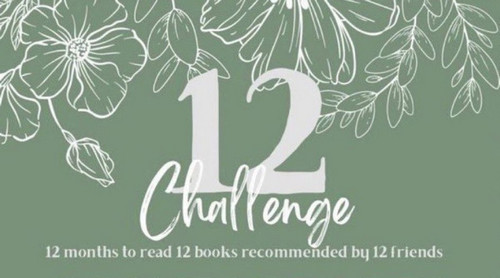 Ordinary Grace
Ordinary Grace
DETAILS: Publisher: Atria Books Publication Date: March 26, 2013 Format: Hardcover Length: 307 pg. Read Date: April 19-20, 2022

All the dying that summer began with the death of a child, a boy with golden hair and thick glasses, killed on the railroad tracks outside New Bremen, Minnesota, sliced into pieces by a thousand tons of steel speeding across the prairie toward South Dakota. His name was Bobby Cole. He was a sweet-looking kid and by that I mean he had eyes that seemed full of dreaming and he wore a half smile as if he was just about to understand something you’d spent an hour trying to explain. I should have known him better, been a better friend. He lived not far from my house and we were the same age. But he was two years behind me in school and might have been held back even more except for the kindness of certain teachers. He was a small kid, a simple child, no match at all for the diesel-fed drive of a Union Pacific locomotive.
What’s Ordinary Grace About?
It’s the summer of 1961, and thirteen-year-old Frank and his younger brother, Jake, are going to be irrevocably changed over the next few months. Their small Minnesotan town of New Bremen, will be rocked by five deaths and some near-deaths, as well.
Frank and James live there with their older sister, Ariel—eighteen and about to leave their parents’ home. Nathan and Ruth married before Nathan went to serve in WWII—when he came home, he became a Methodist minister instead of the lawyer he’d planned on being before the war changed him. Ruth hasn’t entirely forgiven him for that but does her best to take part in congregational life, and to make do with his small salary.
Ariel is their golden child, Julliard-bound. Jake stutters, and is clearly fearful of almost everything—and everyone—around him, drawing what little confidence he has from his proximity to Frank. Frank is the family rebel—by most standards, he’s only slightly mischievous, but compared to the rest of the Drum family, he’s the equivalent of Bart Simpson.
The first death (see the quotation of the novel’s first paragraph, above) is that of someone that Frank and Jake knew–even played with. The boys discover the second body, a stranger to them. Those two are enough to alter the course of their development to a degree—but the next three (and the accompanying events) are what will leave an indelible mark on the entire family.
God’s Awful Grace
Krueger likes to use the phrase “the awful grace of God,” and makes other references to it, he wants that idea in your head as you read about the horrible things and deaths the reader and the characters encounter. You’re supposed to think about the (apparent) contrast between “awful” and “grace”, as well as catch the references to Aeschylus and Robert F. Kennedy (and, by extension, Martin Luther King’s death).
As far as the Aeschylus/RFK allusions go—yes, think about those. I think there’s a lot to chew on there. Sure Kennedy has yet to cite that poem, but the narrator has heard it–he’s writing from the perspective of four decades later.
But the former suggestion? I’m sure that Krueger, and many/most of his readers, know the phrase isn’t to evoke something extremely bad or shocking/saddening, but the archaic definition of awe-inspiring or enormous. But the reflex for contemporary readers isn’t to go with the lesser-known/used understanding but to think of the surface and the tension between the ideas, and it bothers me that we’re supposed to spend time on that understanding, even if it’s only a little bit. I’m not sure why it does, but it does.
But while I’m here on the subject of God’s grace, can I just say that the one sermon that we get all of from Nathan Drum, during the darkest part of this book, is one of the best I’ve read in a long time. Drum doesn’t understand grace the same way that RFK or Aeschylus does—grace to him is the unmerited sort, the kind that will come to someone in loss, in misery, in despair, and will cause them to believe, hope, and love. The book was worth the effort for this sermon alone, the rest is just gravy.
Krueger’s Prose
On the one hand, the prose is gorgeous—Krueger’s one of those authors that feels like he’s writing, perpetrating hooptedoodle. He breaks most of Leonard’s rules for writing all over the place, notably, “If it sounds like writing, I rewrite it.” But, as Leonard notes himself, there are authors who can skip them–Krueger’s one of those authors.
Still, there are a couple of things that got under my skin and would frequently take me out of the moment. For one, Krueger is sparing in his use of commas—a couple of times, I’d read a sentence out loud the way it’s in the book, and then with the missing commas; and I think I could get close to understanding why he made the choice. I didn’t agree, but I could maybe see what he’s going for.
But the thing that really bothered me was the dialogue. It really reads like someone wrote it, everyone (or almost everyone) is almost constantly sounding like they’re making a profound point about whatever. Particularly when it comes to Frank and his brother—I don’t need prepubescent boys uttering sentences with layers of meaning and dripping with wisdom nearly every time they say something.
That doesn’t mean that some of those sentences aren’t great and readable and even quotable. It just means it bothered me.
So, what did I think about Ordinary Grace?
“… He’s a vet. Korea. Had a tough time over there. It’s eating at him, I believe. He drinks. He’s hard on his family…”
“Sometimes, Nathan, I think it wasn’t as what we took into the war. Whatever cracks were already there the war forced apart, and what we might otherwise have kept inside came spilling out.”
Once I’d gotten on board with the hooptedoodle, I was able to appreciate what Krueger was about. This really brought Tiffany McDaniel’s The Summer That Melted Everything to mind (and Betty to a lesser extent). I also was reminded of Songs In Ordinary Time by Mary McGarry Morris, A Prayer for Owen Meany by John Irving, and early Richard Russo, as I read this. None of which would ever be considered for the Edgar, Anthony, Macavity, or Barry Awards like Ordinary Grace won. I know those awards mean I should think of this as a Mystery or Crime novel, but I just don’t. It fits with the others better, I think (but I do see why it won those).
It’s a book that will get its hooks into you, if you let it, just not the way that most Mystery novels do. It will make you think, it will make you feel, and it may cause you to think deeper (or more shallow, I suppose) thoughts about God and His grace. But mostly, it’ll make you think about humanity and many of the ways we can harm each other, intentionally or not.
I won’t say that I enjoyed 98% of this book—but the entire time I spent reading it I was fully aware that I was reading something of quality–something that deserved my attention, and I was glad to give it. I also had no trouble seeing why my friend recommended it to me–and I owe her a solid recommendation in return.


This post contains an affiliate link. If you purchase from it, I will get a small commission at no additional cost to you. As always, opinions are my own.
![]()


